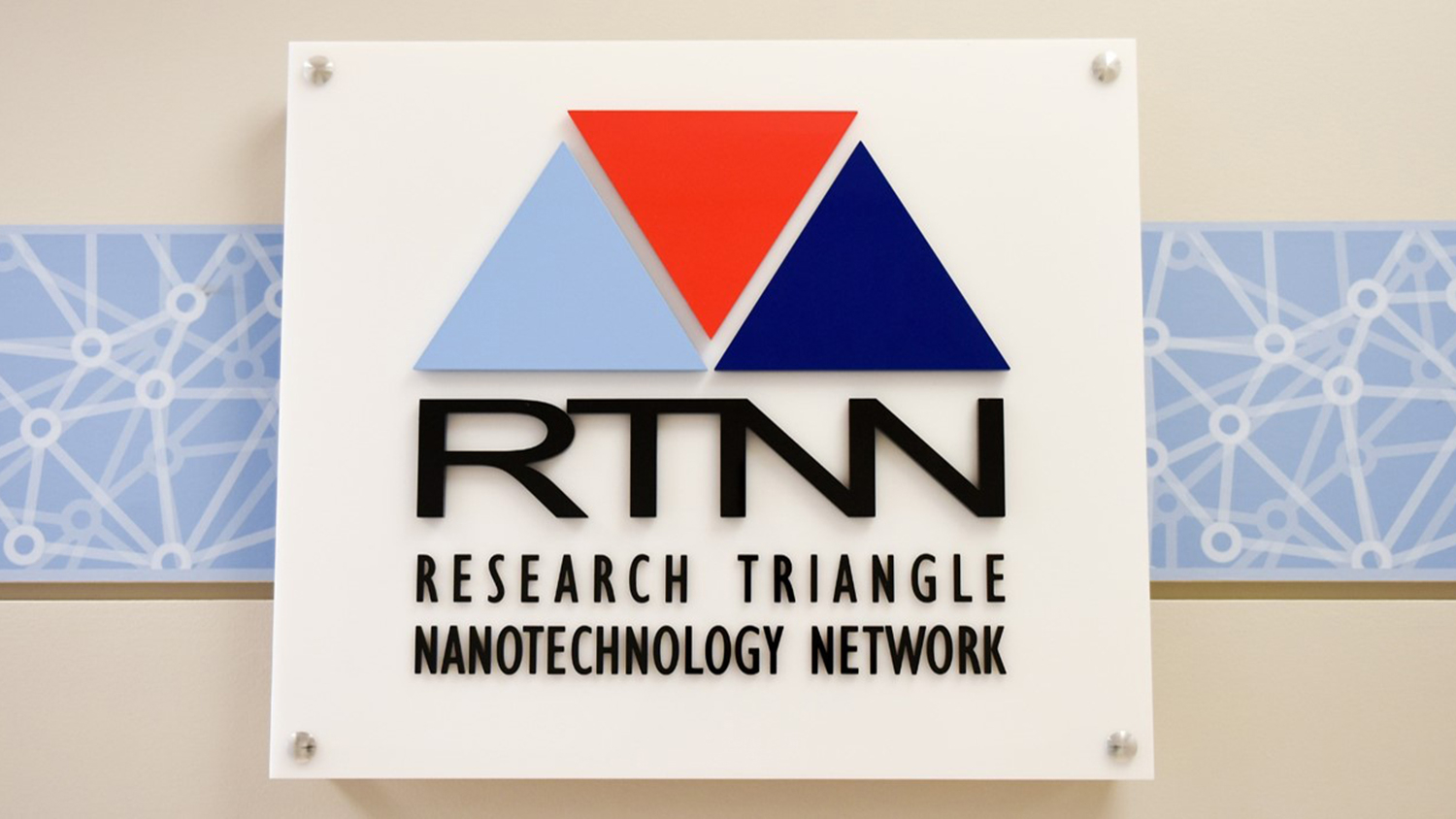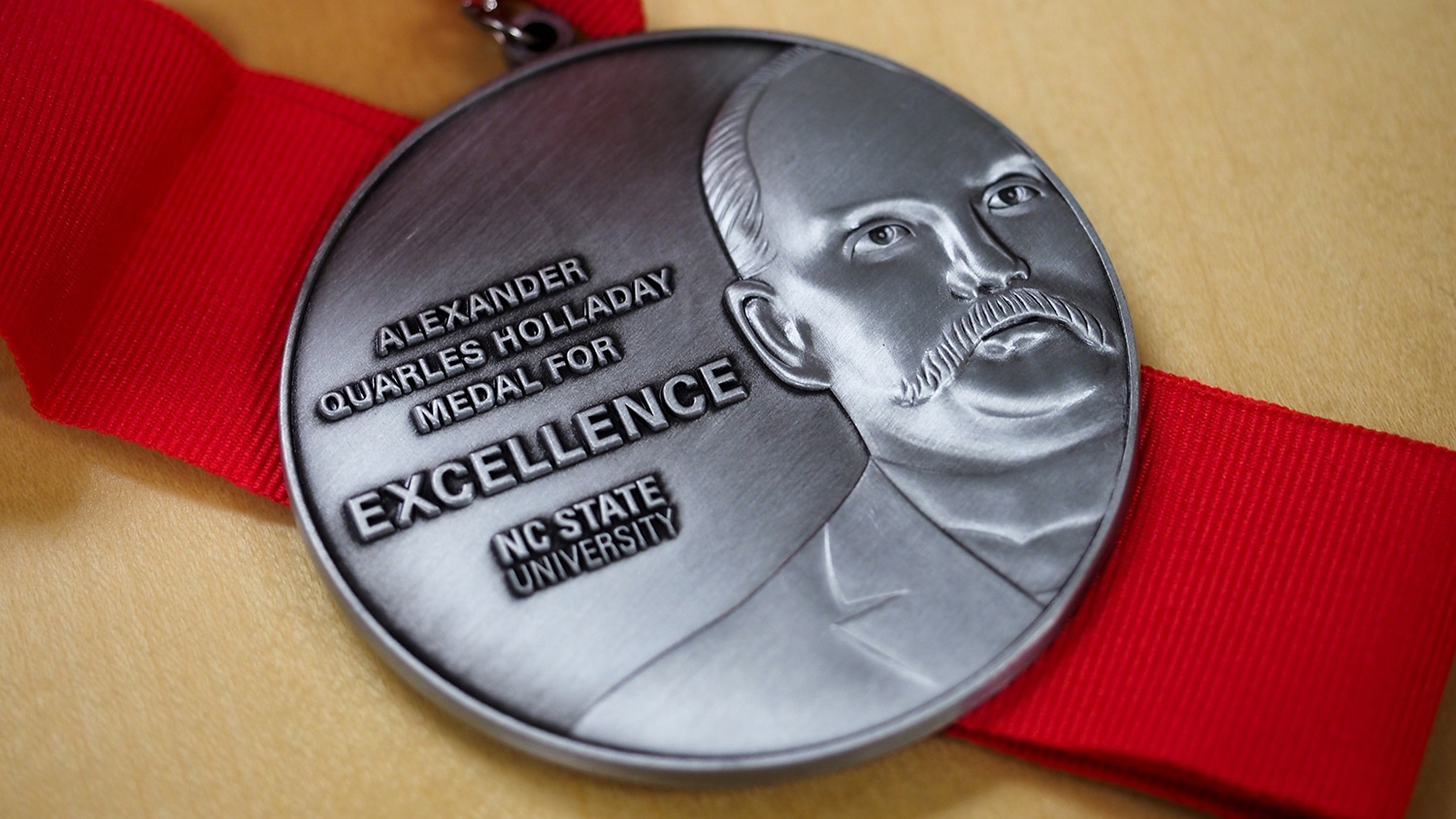Khan receives RJ Reynolds Award

Dr. Saad A. Khan, Alcoa Professor in the Department of Chemical and Biomolecular Engineering at North Carolina State University, is the 26th recipient of the R.J. Reynolds Tobacco Company Award for Excellence in Teaching, Research and Extension. Khan received the award at a ceremony held Tuesday, Nov. 16, in the Larry K. Monteith Engineering Research Center at NC State. The award presentation was followed by Khan’s lecture, “Picking Materials That Make a Difference: Soft Solids, Colloidal Gels and Nanofibrous Structures.”
The award was established in 1981 within the College of Engineering to honor a member of the engineering faculty who has demonstrated superiority in several areas of activity that relate to the University’s three-fold mission of teaching, research and extension. The annual award is supported by the R.J. Reynolds Tobacco Company through the NC State Engineering Foundation to bring recognition to scientific and educational achievements in fields of engineering. The recipient is given a $25,000 prize distributed over five years.
Khan is an internationally renowned scholar in the areas of soft solids, gels, colloids and associative networks. From his seminal work in foam rheology, Khan’s research has expanded to include rheology and processing behavior of novel and complex materials, and more recently to engineered and functional electrospun nanofibers. Since joining the faculty at NC State in 1993, Khan has not only built an outstanding record of research and teaching, but has done it while serving for the past 12 years as director of the graduate program in chemical and biomolecular engineering, establishing and directing the nation’s first distance education master’s degree program in chemical engineering, and organizing national and international meetings, among other services to the engineering community. These attributes and his many accomplishments in research and education have earned Khan the Alumni Association Outstanding Research Award, the Alumni Distinguished Graduate Professor Award, the Alcoa Foundation Distinguished Research Award, and the Alcoa Engineering Research Achievement Award.
A hallmark of Khan’s creative approach to research is his ability to undertake cutting-edge work in emerging areas and combine his knowledge from unrelated areas to address topics of technological impact. An example in this regard is his pioneering work in developing an in situ technique to rheologically monitor the crosslinking of UV curable polymers, a methodology that is now an industry standard. Khan is among the world leaders on associative polymers that interact with each other through hydrophobic interactions to create three-dimensional structures. Using a novel interaction between cyclodextrin and a hydrophobic group, Khan was able to reversibly turn off and on these hydrophobic associations, research that has had substantial impact on the field of paints and coatings where these associative thickeners are widely used. From these and other groundbreaking research activities, Khan has amassed more than 140 peer-reviewed publications with more than 2,800 citations and an h-index of 34. He has been issued 16 patents in areas ranging from polymer gel electrolytes to hydraulic fracturing fluid and super critical facilitated process and materials, a testament to the breadth and depth of his research.
Khan has made serving the needs of his students a top priority, and their accolades reflect his mentoring and teaching success. He has supervised 34 doctoral students (10 current), 4 master’s students, 11 postdocs and more than 30 undergraduate researchers. Of his 24 graduated PhD students, four are in academia and the rest are employed at diverse and competitive industrial and research laboratories that include ExxonMobil, GE, GlaxoSmithKline, Coca Cola, RTI and the USDA. Many have won awards at the departmental, regional and national level. In 2001, Khan was rewarded for his efforts with the NC State Outstanding Teacher Award and election to the Academy of Outstanding Teachers.
As director of the department’s graduate program, Khan coordinated the first program review in more than 15 years. The distance education master’s program he created has grown from nine students to 32 students in just four years. Internationally, Khan has been a visiting scientist for the United Nations on its Transfer of Knowledge through Expatriate Nationals (TOKTEN) program to Bangladesh, a visiting faculty member at the University of Campinas in Brazil, and was recently invited to the Society of Petroleum Engineers meeting in Egypt to lead a discussion on nanotechnology in the petroleum industry. He organized the annual conference for the Society of Rheology, the primary society in the field, in 2001 and 2010.
Khan received his bachelor’s degree in chemical engineering from Princeton University in 1980 and his PhD in chemical engineering from the Massachusetts Institute of Technology in 1985. He was a member of the technical staff at Bell Communications Research before joining the NC State faculty in 1993.
- Categories:


